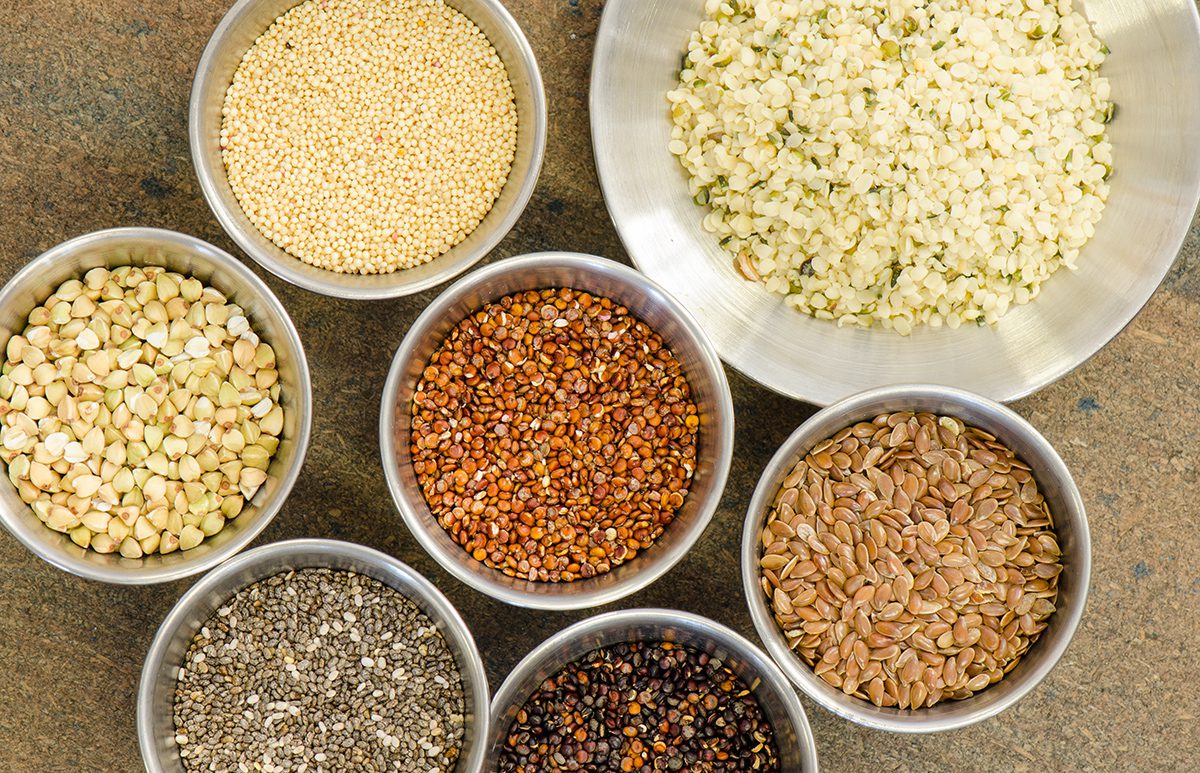The Mediterranean diet is, without a doubt, one of the world’s most nutritious diets. Full of a unique selection of fruits, vegetables, and whole grains that are all rich in essential vitamins and minerals, this diet is famed for keeping up with delicious food while also being low in unhealthy fats and has become one of the most popular diets in the world as a result.
However, when it comes to the question of how the Mediterranean diet started, it can be a little confusing to answer, as this diet ranges across multiple cuisines with many different origins stories. However, it all seems to tie back to one era of time that truly started it all and that of which has helped it to grow into what it is today. With that said, today, we’re going to delve into the history of the Mediterranean diet, its origins, and how it has changed over the years to be what it is today. Let’s get started.
What is the Mediterranean Diet?
To start, the Mediterranean diet is a unique plant-based diet inspired by the traditional foods of the countries surrounding the Mediterranean Sea, such as Italy, France, Greece, and Spain. This diet is rich in fresh whole foods and grains, such as leafy vegetables, legumes, fresh fruits, and nuts, and is designed to help you live an overall healthier life in mind and body.
Not to mention, numerous studies have also been done on the Mediterranean diet that has shown many incredible health outcomes, such as how following this diet may help with weight loss as well as reduce your chances of experiencing major diseases such as stroke, cardiovascular disease, Alzheimer’s disease, and type 2 diabetes. For this reason, this diet has been ranked as the best diet of almost five years in a row by the U.S. Health News and World Reports and is truly unlike any other.
What food does the diet consist of?

Now that we’ve gone over a little bit about what the Mediterranean diet is, we wanted to dive into the traditional foods that make up the Mediterranean diet food pyramid, to begin with. With that said, some of the top foods that you would typically eat on this healthy diet include:
- Leafy vegetables
- Citrus fruits
- Whole grains
- Nuts
- Legumes
- Dairy
- Seafood
- Natural oils
- Meat
- Red wine
And more. Above all else, following the Mediterranean diet simply just means that your food intake is full of more nutritional value, such as fresh fruits and vegetables that undergo little to no processing. As a result, red meat and animal fats are not typically consumed on this diet. However, the Mediterranean diet is also pretty flexible and also allows plenty of room for sweets and other foods as long as they are not in high consumption, so you never have to feel like you’re missing out on all your favorite foods.
History of the Mediterranean Diet
And finally, now that we’ve gone over a little bit about what the Mediterranean diet is and what foods it typically consists of, let’s dive into some of the Mediterranean diet’s history and how it may have originated, to begin with.
Origins of the Mediterranean Diet
To start, when it comes to the origins of the Mediterranean diet, while the exact origins of the diet are a bit uncertain, the Mediterranean diet can most likely be traced back to the diets that our ancestors once followed in the Middle Ages that relied heavily on bread and oils to keep their bellies full. This was commonly referred to as the ‘poor man’s diet’ back in the day for the simplicity that it followed and was essentially known as the “bread-oil-wine” triad.

However, other cultural influences are also believed to have influenced the Mediterranean diet that we know and love today, such as when the Barbarians and other settlers reached the Mediterranean region and began to introduce some of their own unique food culture that would mingle with the traditional cuisines already formulated in the Mediterranean. This would continue to grow and expand through the years with a mix of many different cultures until this diet came to be what it is today, keeping many of its original ingredients intact as well as collecting a few new ones from other cultures over the years.
Ancel Keys’ Modern Contribution
Now, despite its ancient origins that were believed to follow the lifestyle and cultural influences of many different groups, the actual Mediterranean diet that we know today wasn’t initially discovered until the 1950s from a study on the diet and livelihood of countries boarding the Mediterranean Sea. This study was done by Ancel Keys, a professor at the University of Minnesota in Minneapolis.
With that said, according to historical documentation, Ancel Keys was already well-known for his part in helping to develop K-ration military meals for those serving in the war. However, after the war, there had been an extensive rise in heart disease as certain foods became unavailable, and he wanted to research what it was that was causing heart disease to rise amongst people. For this reason, he and his wife traveled to many countries post World War II to conduct studies on the lifestyle, eating habits, blood pressure levels, and blood cholesterol levels of the individuals living in different regions around the world to see how their way of life differed from those in the Western World.
Many years to follow, Keys then conducted a study known as the Seven Country Study, where the diet habits of 12,000 middle-aged men in seven different countries were studied. This included countries such as the United States, Italy, Greece, Japan, Finland, the Netherlands, and Yugoslavia. After years of extensive research and follow-ups with the experimentees every 5, 10, and 15 years, it was found that many countries that consisted of diets high in saturated fats and meats, such as the United States and Finland, were found to have higher rates of heart disease, while the Mediterranean countries that were rich in vegetables, fruits, grains, and other plant-based ingredients had very low rates of heart disease.
After this, Keys then discovered and proved with evidence that those living around the Mediterranean Sea basin were considered to have better dietary habits with lower rates of metabolic and cardiovascular disease than the nations of the Western world, which led to the conclusion that Mediterranean foods were the best way to keep your body thriving. Thus, he coined his work as the ‘Mediterranean diet,’ which grew into the traditional diet that we know and love today.
The Lyon Diet Heart Study

However, aside from the many years of research done by Ancel Keys on the Mediterranean diet, the Lyon Diet Heart Study was another Mediterranean research piece born in 1998 and was a randomized study designed to test the effectiveness of the Mediterranean diet for reducing the rate of recurrence after a first myocardial infarction. After conducting this study for three years, it was found that a surprising amount of 73% of experimentees saw a reduction in cardiac problems. As a result, it was believed that the Mediterranean diet could help to reduce an early death rate by nearly 50%, according to Kathy McManus, director of the nutrition department at Brigham and Women’s Hospital in Boston (todaysdietitian.com).
Therefore, the Lyon Diet Heart Study was yet another success in history for proving the effectiveness of the Mediterranean diet and its incomparable health benefits, which only continued to add to its credibility and popularity. You can read more about the Lyon Heart Study, its methods, and its results here on pubmed.gov.
Why has the Mediterranean diet been growing in popularity recently?
Now that we’ve covered a little bit about what the Mediterranean diet is, its history, and where it may have originated from, we also wanted to take a look and see what has truly made this diet’s popularity spike over the last 5-10 years to begin with. With that said, here are some of the top reasons the Mediterranean diet may have grown to be so popular in the last decade.

1. It promotes overall better health
To start, the first and most obvious reason that the Mediterranean diet has likely grown to be popular in recent years is that it is known to promote better overall health. From helping to reduce your chances of heart disease to helping to keep additional weight off, the Mediterranean diet truly does it all and is excellent at keeping you feeling like your best self at all times.
2. It’s a flexible diet
Next, there’s no denying it; nobody likes going on a diet these days as the diet’s usually means fasting, going carb-free, and the inability to eat the food that you truly enjoy. However, that’s where the Mediterranean diet truly stands out, as this dietary plan is incredibly flexible and encourages a delicious, versatile, and carb-rich diet to keep you feeling happy and full at all times.
Therefore, if we look at the reasons the Mediterranean diet may have grown in popularity in recent years, its strategic and easy-to-follow dietary plan is, without a doubt, one of the biggest reasons more and more people have begun to try it.
3. It’s low in calories
Next, another reason the traditional Mediterranean diet has likely grown in popularity recently is that, despite its hearty selection of foods that are rich in whole grains, olive oil, legumes, and nuts, the Mediterranean diet is also incredibly low in calories, which helps you to keep off weight effortlessly. For this reason, this diet makes it easier than ever to reach your goals while also following a delicious meal plan that is bound to leave you feeling satisfied.
4. It’s low in salt
Next, another reason the Mediterranean diet is likely growing in popularity is that it is very low in salt. And, whether we’d like to admit it or not, most of the food we eat today has an overload of salt that is very negatively affecting our health and weight control levels. For that reason, by incorporating the Mediterranean diet into your everyday lifestyle, you’re helping to focus your attention on fresh spices and herbs instead, which will help you to keep the weight off as well as add a plethora of new flavors to your dishes.
5. It shows you the beauty of eating fresh
Next, there’s no doubt about it; this generation has become a lot more health-conscious in the way they eat these days. From only wanting to consume plant-based and organic ingredients, society is starting to recognize the importance of eating fresh. Therefore, another perk of this diet is that it can help to show you just how fun, versatile, and enlightening it can be to eat and cook with fresh ingredients.
This, overall, will help you to find a more sustainable diet for the planet as well as your own personal health needs.
6. It’s been ranked as the #1 diet for four years straight
Up next, perhaps another one of the most obvious reasons the traditional Mediterranean diet has grown in popularity once again is because it has been declared as the best diet for four years in a row by the US and World Reports for weight loss and its ability to keep away chronic diseases. With that said, as we briefly mentioned above, this diet is believed to be able to also help lower your chances of Alzheimer’s, diabetes, Parkinson’s, and other major diseases many adults suffer from.
For this reason, it all around is known to be a great diet to help extend your life and longevity, and easily one of the most popular diets around as a result.
7. It’s good for mental health too
Next, aside from all its incredible physical health benefits, the Mediterranean diet has also likely grown in popularity for its ability to also help keep your mental health in check as well. According to Medical News Today, the Mediterranean diet may be able to lower your risk of experiencing depressive episodes due to its anti-inflammatory eating patterns.
And while there is still more research needed to be done, with a diet so rich in nutrients and essential vitamins and minerals, there’s no doubt as to why the Mediterranean diet may be able to promote better mental health as well as physical health.
8. It may help to protect against frailty
Next, another reason the Mediterranean diet may have become popular in recent years is for its potential to help protect again frailty in older adults. With that said, frailty is a condition in which older adults and elderly people experience a decline in their health, such as extreme weight loss, bone fractures, or weak bones, as well as extremely stiff joints and muscles. However, according to PubMed, while on the Mediterranean diet, seniors had shown a decrease in slowness and frailness, which is believed to be able to help delay this in older adults as a result.
9. It’s the perfect diet for anyone
And lastly, perhaps another reason the Mediterranean diet has become so popular in the last decade is that it’s truly a diet that everyone can enjoy. While some diets specifically limit you to only fish or vegetables, this diet truly makes the best of all ingredients to allow everyone from meat-eaters to vegans to enjoy. For that reason, it makes it much easier for all individuals to follow, no matter what their personal dietary preference is.
Conclusion
Overall, the Mediterranean diet is believed to have many different origins, depending on who you ask, and its research still continues to grow and change even today. However, something everyone can agree on is that the Mediterranean diet is, without a doubt, one of the most beneficial diets that have helped to improve the lives of many people all around the world.
If you would like to start a Mediterranean diet you can also try nutritional supplements as a start.
So whether you’re looking to lose weight or simply take control in improving your overall health, above all else, we hope this article has helped you to better understand what the Mediterranean diet is, how it came to be, and why it is now renowned as one of the best diets in the world for creating the perfect sustainable and healthy lifestyle like no other.
Sources:
https://foodinsight.org/what-is-the-mediterranean-diet/
https://www.ncbi.nlm.nih.gov/pmc/articles/PMC3684452/
https://www.sciencedirect.com/science/article/pii/B9780124078499000014
https://theconversation.com/how-the-mediterranean-diet-became-no-1-and-why-thats-a-problem-131771
https://lifeinitaly.com/mediterranean-diet-part-ii/


